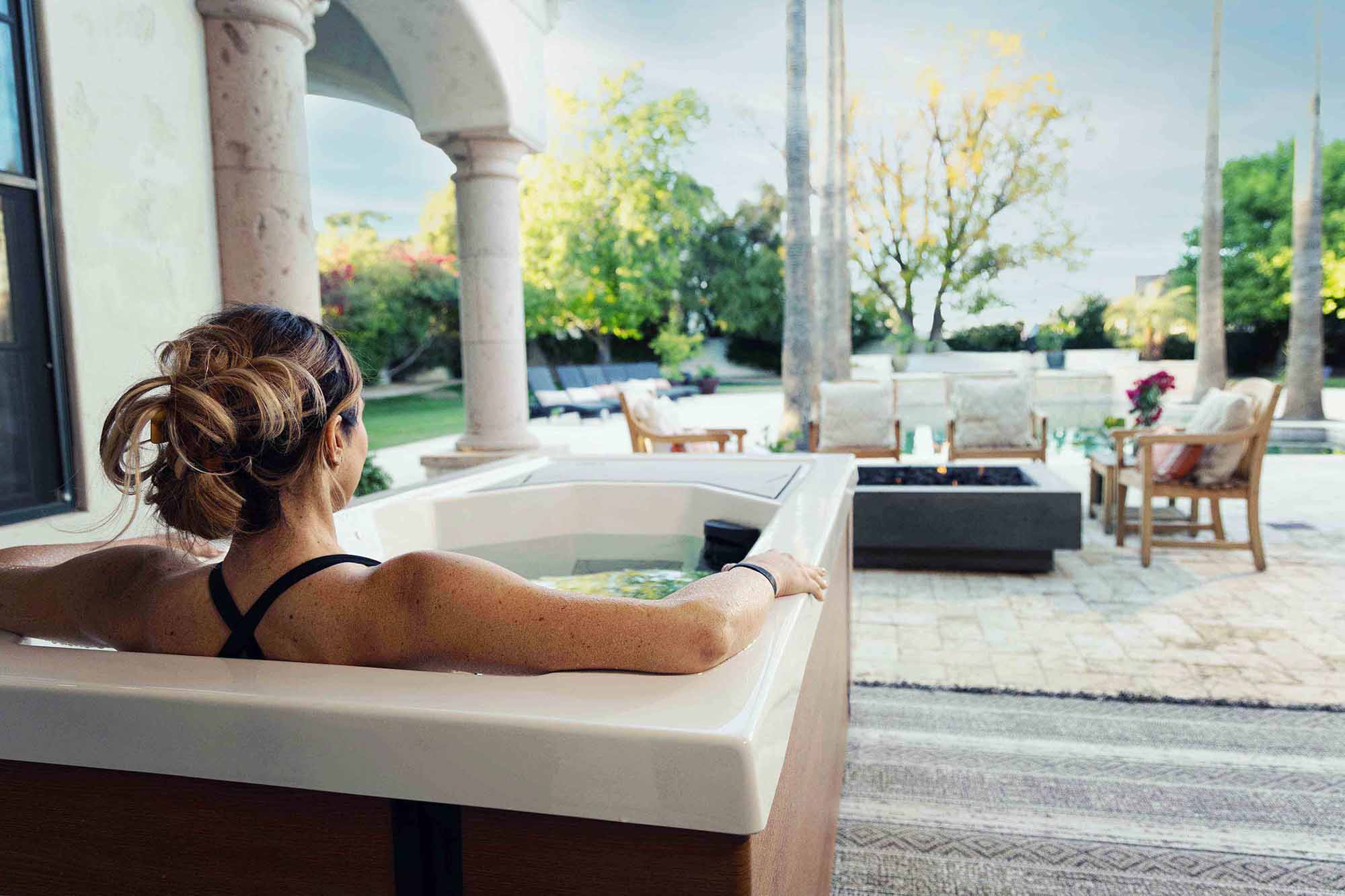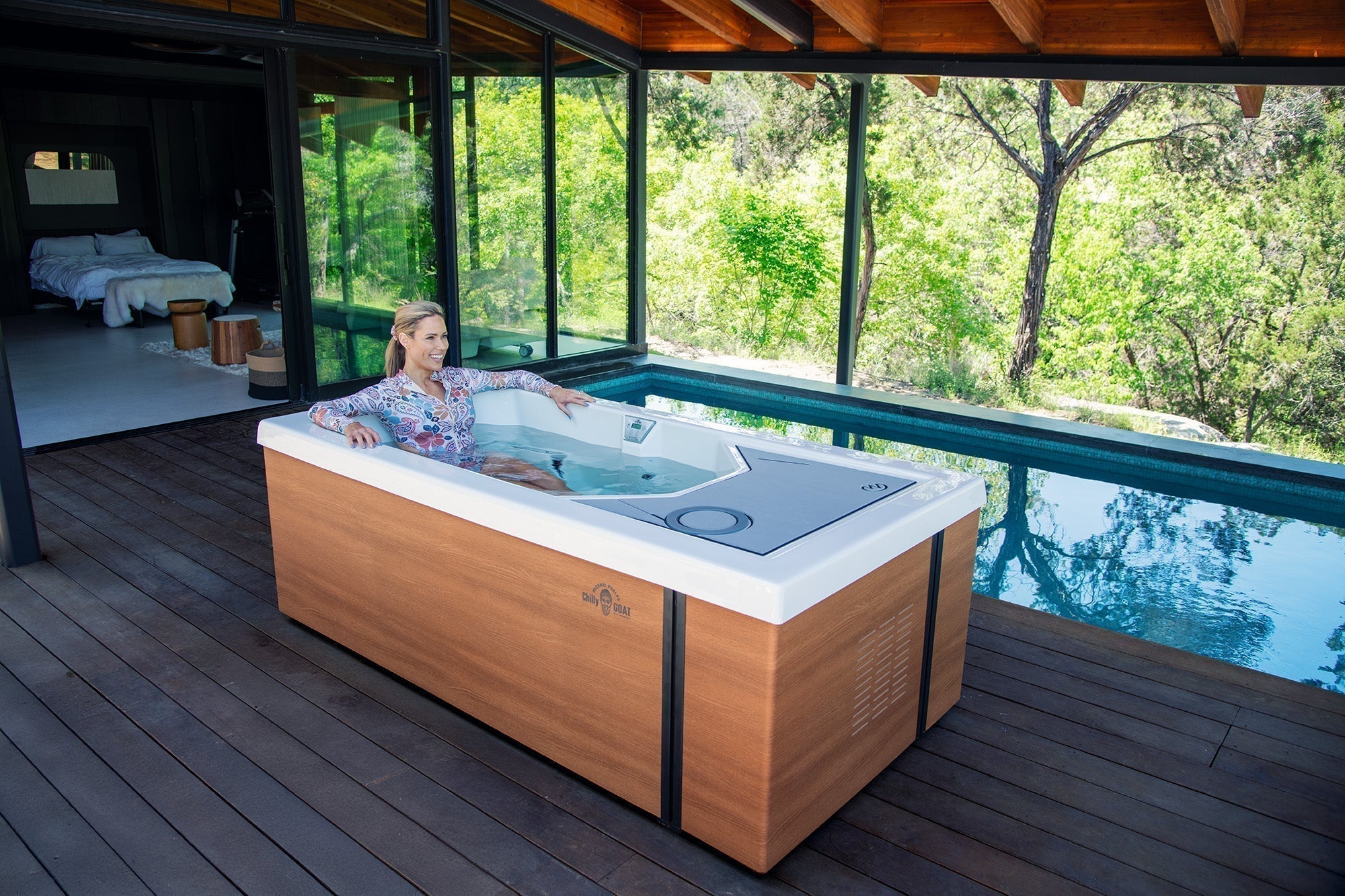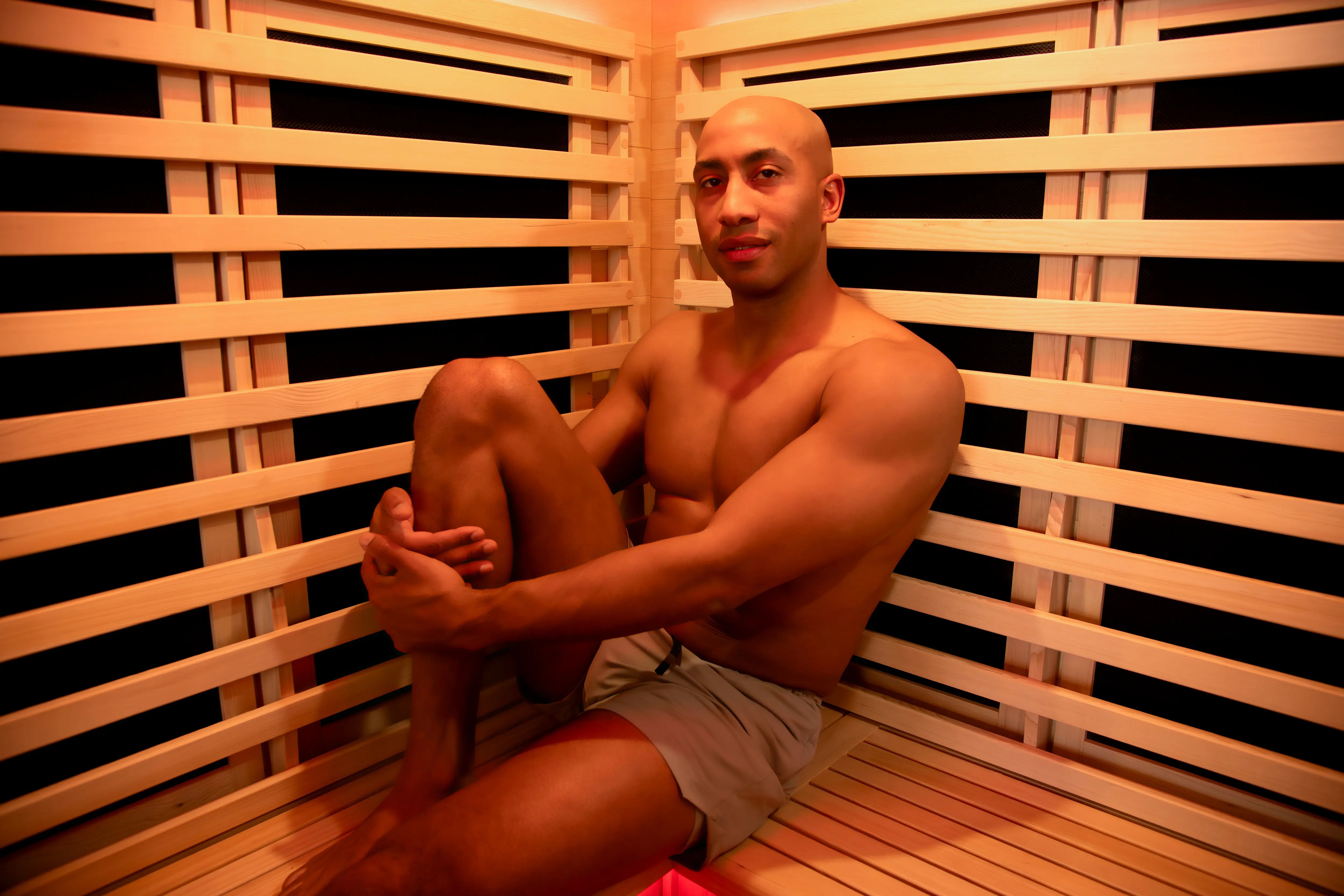There’s a lot to be said about your comfort zone. “A comfort zone is a beautiful place but nothing grows there.” “Great things never come from comfort zones.” “The comfort zone is the great enemy of courage and confidence.” “Life begins at the end of your comfort zone.”
But the universal truth is that humans are designed to seek comfort. Why? It was a matter of life and death.
Our ancestors had to find ways to shield themselves from the harsh realities of nature — predators and, the elements. They sought safety and comfort under natural shelters, on higher ground.
Their comfort zone looks a lot different from our comfort zones of today, where we are precisely measuring coffee beans and taking the temperature of our water to make the perfect pour over. We are modifying burpees in a prescribed workout. There are heaters in the seats of our vehicles, and our homes are bigger than they have ever been. We have created a world that is familiar and safe and cozy.
However, these modern comforts aren’t helping us survive and thrive. In fact, they might be making us unhappy. According to The Atlantic, amid advances in our quality of life, Americans’ average happiness is decreasing. The General Social Survey reports a gradual decline in happiness from 1988 to the present.
There are many factors that can contribute to the decline in happiness — increased stress, social isolation, and lack of self-esteem. However, it can also be because we have unfulfilled needs or desires. We feel stuck. Stagnant. We are too comfortable.
Stepping outside of your comfort zone can be intimidating, but it can also be one of the most rewarding experiences you can have. When you challenge yourself to do something that scares you or that you're not used to, such as cold water immersion or changing careers, you can grow in ways you never thought possible.

What is a comfort zone?
According to Dr. Abigail Brenner, a San Francisco-based psychiatrist, a comfort zone “is a psychological/emotional/behavior construct that defines the routine of our daily life” that “implies familiarity, safety, and security.”
The phrase "comfort zone" has been in use for over a century, with its origins traced back to the field of psychology. The term was first introduced by psychologists Robert Yerkes and John Dodson in 1908 to describe the level of stress and anxiety that an individual can tolerate before their performance begins to decline. However, it wasn't until the 1980s that the phrase gained widespread popularity outside of academic circles, and it became a popular concept in self-help and personal development literature.
In her 1991 book, “Danger in the Comfort Zone: From Boardroom to Mailroom, How to Break the Entitlement Habit That's Killing American Business,” management thinker Judith Bardwick argued that many companies and individuals become complacent and fail to adapt to changing circumstances because they are too comfortable with their current situation. She used the term "comfort zone" to describe the state of being too comfortable and resistant to change, which can lead to a lack of growth and development.
Bardwick's book struck a chord with many business leaders, and the phrase "comfort zone" has since become a ubiquitous term in the corporate world, often used to encourage employees to take risks and embrace new challenges.
Now, the idea of stepping out of one's comfort zone is commonly used as a metaphor for taking risks and pursuing personal growth, and it has become a central theme in many areas of life, from business to relationships to sports.

Why you should say goodbye to your comfort zone
Stepping outside of your comfort zone can be a daunting and intimidating prospect, but it can also be incredibly rewarding. When you challenge yourself to try new things, take risks, and push past your boundaries, you open yourself up to opportunities for personal growth, self-discovery, and transformation.
From building confidence and resilience to discovering new experiences and perspectives, there are countless benefits to stepping outside of your comfort zone and embracing the unknown.
Personal growth
Personal growth is one of those topics that you are likely to find when you come across self-help and motivational literature. It’s the idea that individuals should seek to improve themselves and reach their full potential in all areas of their lives.
When you focus on personal growth, you will become more self-aware, build resilience, and gain a sense of purpose and direction in life. You can also develop new skills, build your relationships, and improve your emotional intelligence.
But you can’t grow without challenging yourself. And that’s why you can benefit from stepping outside your comfort zone. When you take risks and try new things, you're forced to confront your fears and limitations, which can ultimately lead to personal growth.
Improved confidence
Confidence is a belief in oneself and one's abilities, skills, and qualities. It is the feeling or belief that one can successfully perform a task, overcome a challenge, or achieve a goal.
But most of us struggle with confidence at some point. Research suggests that low self-esteem and confidence can affect up to 85 percent of the population at some point in their lives, and can have a negative impact on mental health, relationships, and overall well-being.
Improving your confidence is a process. It can include positive self talk, setting achievable goals, and developing key skills. It can also include stepping outside your comfort zone and trying new things. When you succeed, it can have a positive impact on all areas of your life, from your career to your personal relationships.
Resilience
Resilience is the ability to bounce back from difficult experiences or adversity. But it’s more than bouncing back. It is about taking those experiences to adapt, change, and even thrive. When you are resilient, you are able to maintain a positive outlook, cope effectively with stress, and navigate through difficult situations with a sense of hope and optimism.
Resilience is not something you are born with. It’s a skill that can be developed and strengthened over time. By taking on challenges and overcoming obstacles, you can become more resilient and better equipped to handle future challenges.
New opportunities
Many people equate doing something scary with leaving their comfort zone. If you have a fear of water, taking swim lessons or going snorkeling will be far outside your comfort zone. You might even avoid a trip to the beach because most activities center around water.
However, when you confront that fear and break through those barriers, new opportunities will become available to you. For that person afraid of water, you might get to see a new part of the world or participate in your first triathlon.
Maybe you feel comfortable in your job. But a new position at a different company will provide an opportunity for growth. Taking that step to apply for the job will reveal things and experiences that you wouldn’t otherwise see.

7 ways to step outside your comfort zone
Stepping outside your comfort zone doesn't have to mean doing something drastic. Start with small steps, such as trying a new food or taking a different route to work. As you become more comfortable with discomfort, you can gradually take on bigger challenges.
Check off an item on your bucket list
From incredible adventures to learning a new language, a bucket list is just that — a list. It’s the things you want to accomplish or experience before you, well, kick the bucket.
But sometimes we let fear or self-imposed boundaries prevent us from checking off items on our bucket list.
If you really want to get out of your comfort zone, pick one item on your bucket list and work toward checking it off.
For example, if your bucket list includes traveling to all 50 states, start by choosing a state or region to focus on first. Research the best places to visit and create a plan and a budget to make it happen. Once you've accomplished that goal, move on to the next region or state on your list. Celebrate each milestone along the way, and keep track of your progress to stay motivated.
Take an ice bath
Have you ever stepped outside in the summer and felt your mood instantly lift? According to Dr. Christopher Lowry, an associate professor of integrative physiology, “exposure to warm temperature stimuli that aren’t painfully or unpleasantly hot can elevate a person’s mood.” [source]
But cold water immersion, also known as cold exposure therapy or ice baths, can be a powerful tool for leaving your comfort zone and pushing yourself to new limits.
Submerging yourself in 50-degree water might be uncomfortable. However, you should try to embrace the discomfort rather than resisting it. Focus on the positive effects it is having on your mind and body.
Cold plunges, showers, and baths have been shown to reduce anxiety, inflammation, and muscle soreness. Cold water immersion can also benefit your immune system, energy levels, and sleep.
There are several ways to do cold water immersion, such as taking an ice bath, taking a cold shower, or going for a swim in cold water. But a Michael Phelps Chilly GOAT Cold Tub by Master Spas allows you to incorporate cold water immersion into your daily routine. A thermostat allows you to set the chill tub to your preferred cold temperature, and a water purification system keeps the water clean.
Change up your routine
You might feel like you are stuck in a rut. You are doing the same things every day — eating the same breakfast, driving the same way to work, ordering the same drink at your local coffee shop. It might be a routine but it’s also an example of your comfort zone. And if you want to grow and change, you can’t do the same things every day and expect things to change.
One way to exit your comfort zone is to change your routine. It can be as simple as trying a new restaurant on date night or get up earlier so you can exercise in the morning.
Expand your professional skill set
Expanding your professional skill set is an important part of career growth and personal development.
But it can be daunting to pursue a new degree, sign up for a workshop, or attend a seminar. You might be afraid of failing, not having enough time, or being judged.
It’s important to remember, though, that these feelings are normal. Everyone starts somewhere, and it's OK to make mistakes and learn from them. By focusing on your goals and taking small, consistent steps towards learning new skills, you can overcome your fears and achieve success in your career.
Take on a fitness challenge
Fitness challenges can be a great way to push yourself out of your comfort zone and achieve new goals. If you're new to running, a 5K or 10K race can be a great way to challenge yourself and push beyond your limits. Or, go hiking, cycling, or kayaking in a new location, and challenge yourself to go further than you ever have before. This can help you develop new skills, increase your endurance, and enjoy the outdoors.
Choose a fear, and face it
Fear is a natural human emotion and can arise in response to a wide variety of situations, experiences, and stimuli. Some common fears include heights, spiders, flying, public speaking, and social situations. However, people can also be afraid of less common things such as clowns, small spaces, germs, water, and bridges.
But fear should not be something that keeps us from trying new things or setting an exciting goal. For example, if you want to participate in a triathlon, you might have to overcome a fear of open water. It might be scary and far outside your comfort zone but you will have gained a new skill and opened up the door to a new passion.
If you have a fear of heights, consider taking a rock climbing or rappelling class with a certified instructor to gradually get comfortable with heights. Are you scared of flying? Start by taking shorter flights and gradually work your way up to longer flights. Educate yourself about how airplanes work and how safe air travel is.
Remember that facing fears takes time and patience. Start small and celebrate each step you take towards overcoming your fear.
Travel somewhere new
You know those people. Maybe you are even one of those people. You go on vacation to the same spot every year. When you are at your favorite hotel or vacation rental, you frequent the same restaurants and relax on the same beaches. And you love it. It’s familiar, fun, and free of stress.
But it’s also comfortable.
You might not realize it but booking the same trip year after year is one way of staying inside your comfort zone.
When you travel somewhere new, you can expand your horizons and meet new people. In the process, you’ll build confidence and create new memories.
Buying an at-home cold tub
Do you want to enjoy the benefits of cold water therapy without buying bag after bag of ice? Having a Michael Phelps Chilly GOAT Cold Tub allows you to realize the impact of cold water. Enjoy clean, clear, cold water on demand. You can click here to find out more about the benefits of incorporating a Michael Phelps Chilly GOAT cold tub into your routine. Start your journey today!






How to build mental toughness with cold exposure